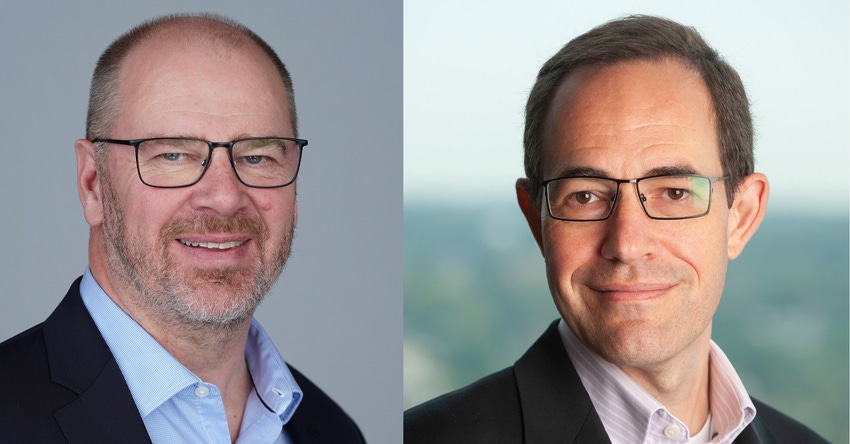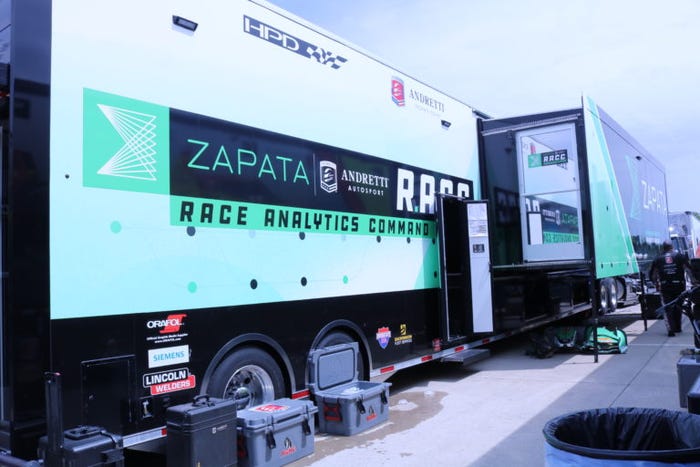
Connects decision-makers and solutions creators to what's next in quantum computing
Q&A with Deloitte’s Scott Buchholz and Colin Soutar

Professional services network Deloitte has leaned into the growth of quantum computing, both for its own research and applications and for advising its clients on best practices. This includes investigating the opportunities quantum computing offers, such as in fraud detection and designing future smart factories, and the threats it could pose, such as potentially breaking public key cryptography.
Enter Quantum caught up with Deloitte global quantum lead and chief technology officer, government and public service, Scott Buchholz and U.S. cyber quantum readiness leader Colin Soutar to discuss the company’s quantum projects and plans.
Enter Quantum: What questions are Deloitte’s customers asking about quantum computing?
Scott Buchholz: They run the gamut from what is this, do I need to care, if so, when, why, how and who? From organizations that are already doing the work we get hey, we're currently researching this very deep specific topic on particular aspects of quantum machine learning and saw you all did some work in that area, and we'd like to ask you specific questions about it. There's probably more on the former side than on the latter.
Deloitte is using quantum annealers for fraud detection. Why is it a good technology for that?
Scott Buchholz: Quantum annealers allow you to construct a problem and then use physics to get to a solution quite quickly. My best simple analogy is atoms get uncomfortable when you put them in unusual positions, and they want to settle down to a great solution very quickly. It's a little bit like watching squirming toddlers.
An annealer takes advantage of that tendency to need to settle down quickly to generate high-quality answers and certain problems fit very well in that paradigm including feature selection in machine learning.
Machine learning features are all the inputs you might have, like for mortgage origination you might include proclivity to pay and credit score. Some of those inputs are redundant as they’re very highly correlated with each other. You’re trying to get the smallest set of largely uncorrelated inputs because that helps you generate a faster, better output.
Quantum annealers have some particular properties that make them good at getting you a high-quality feature set, more so in many ways than our best classical solutions. We’re not suggesting people rip everything out and put in new, shiny quantum things, at least not today. We’re saying, look, there are pieces of this puzzle that you're already doing today that we can improve with some of these technologies.
Last year you announced a strategic partnership with SandboxAQ. What’s the status of that?
Colin Soutar: We must balance the potential applications for quantum computing with some of the security implications it will bring along. Shor's algorithm (a quantum computing algorithm for finding the prime factors of an algorithm that could break public key encryption) could be used to attack some of the currency cryptography.
We see the quantum marketplace as three big pillars. One is around longer-term simulation, optimization and drug discovery. In the middle are things like quantum key distribution, which is using quantum phenomena to relay information. Our relationship with SandboxAQ supports the third one, which is the most immediate, and that is helping organizations to understand what their vulnerability could be to those types of algorithms.
We help them look at how they could put in place a structure that could quickly and adaptively update their cryptography because there will be other threats in the future.
Deloitte published a survey last September that found that more than half of people looking into quantum computers are worried about the harvest now decrypt later threat. Will that process you described help protect against that?
Colin Soutar: Yes, and I hope that a byproduct of such attention will be that organizations will think about data a lot more, whether they need to capture it, and, more importantly, whether they need to store it as long as they do.
The liabilities of GDPR and the state laws in the U.S. mean there's a lot more attention on data. Quantum should put further focus on the expected lifetime of that data, and whether you need it that long or whether it should expunge it and not carry that liability.
Scott, in December you made predictions for the quantum computing industry in 2023, what are Deloitte’s plans for the year ahead?
Scott Buchholz: One of the things that we're focused on for ourselves, is continuing to make sure we understand where the technology is and where it's going. And that's true across the quantum computing space. Keeping up to date with what's going on is an exercise unto itself. We do that for ourselves and others because what we're trying to do is make sure that we know where things are going.
The second thing that we're doing is working to embed some of the technologies in what we do internally. We have a smart factory in Wichita, Kansas, that’s a next-generation manufacturing demonstrator. It answers what would it look like if you could monitor everything through screens as opposed to having to walk the floor. What would it look like if you could dynamically reconfigure things?
Some of the quantum technologies that we've been working on are being deployed into the smart factory, in some cases as proofs of concept and prototypes, in other cases as things that help us and help others know the current maturity of the technology so that we can keep track of where things are going.
We also help our clients with these kinds of problems, whether it's fraud detection, routing optimization for fleets or thinking a bit further out and doing joint research about where the future is going. Many of our initiatives are global. For example, we have a quantum climate challenge going run by some of our European colleagues to help people find better catalysts for certain chemical reactions to help the green economy.
About the Author(s)
You May Also Like
.png?width=100&auto=webp&quality=80&disable=upscale)
.png?width=400&auto=webp&quality=80&disable=upscale)




